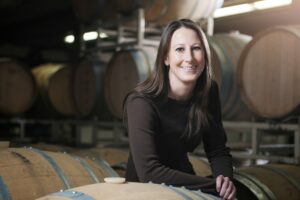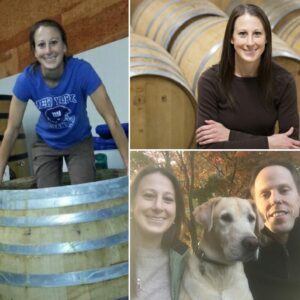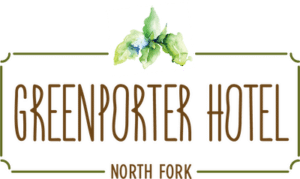
When thinking about International Women’s Day, we must not only celebrate the accomplishments of women who have had the privilege of education and fortitude to break through ceilings. We must also consider how we, as an agricultural and maritime community, can secure professions for our daughters, granddaughters and the young women of the future.
As a wine region, we directly benefit from the rise of wine consumption in the U.S. making the largest wine market in the world. It is no surprise that the rise of wine drinking for Americans of all ages, combined with the environmental interest of millenials in their food sources, has created an explosion in wine-based tourism and agro-tourism as a whole around the country.
While women make up about 50 percent of Viticulture and Enology programs at well known American wine programs like University of California, Davis, and have been involved in farming and wine making for decades, less than 10 percent of U.S. wine makers are women according to the Wall Street Journal.
This is why today’s feature on winemaker, Kelly Urbanik Koch, is an important story as it speaks to the need to encourage our daughters and the young women coming up the ranks to pursue science and other STEM (Science, Technology, Engineering, Math). It is important for women to pursue the education and training that will enable them to participate in the future of agriculture and viticulture in the U.S. and right here on Long Island.
Although Kelly is a California native, she has worked all over the U.S. and abroad. She is the winemaker at the renowned Macari Vineyards, in Cutchogue and been honored with many winemaking awards and recognitions including 90+ points from Wine Spectator, medals from the New York Wine and Food Classic (including best in category), medals from the International Woman’s Wine Competition and honors from Decanter and Wine Enthusiast magazines.
Tell us about the journey that led you to your current career?
I grew up in Napa Valley and when you grow up in a community like this, the world revolves around wine and the grapes. I grew up working with my grandfather on his vines and always loved being outdoors and working with my hands. I also loved nature and science and when it was time to go off to college, I stayed close to home at UC Davis where I initially majored in biology, with a specialty in plant science. As part of the curriculum, I took a class in viticulture and realized that I could pursue a degree in viticulture and oenology and be able to work anywhere in the world–and I did.

When considering that we are celebrating International Women’s Day, how do you feel your career choice can inspire other women to improve their lives and their communities?
Anytime a young woman can see a woman making something with her hands like growing grapes or food or any other craft or trade, it is inspirational. This is what gets girls “playing with Legos” and thinking about making things and building things. One of my first bosses was a woman at Maison Louis Jadot, one of the France’s most prestigious vineyards. Working under her was an incredible inspiration and changed my life. She gave me a honest opportunity to prove myself fair and square and instilled a confidence in me that I would need to succeed in this industry.
People are more accustomed now to seeing a woman in the winemaker role. When I started in the industry, people commented on my age and my gender and couldn’t imagine that I would know how to make wine. Little did they know that I had been around vineyards since before I could remember! Nowadays, the reaction is much more open-minded, like “that’s so cool! How did you learn so much about wine?”
Please share your views on the economic viability of your career choice and how can it be possible for other women to support themselves in the pursuit of their aspirations?
There is a joke in the wine industry, “to make a small fortune in the wine business, you must start with a large fortune”. While this can be true, my opinion is this: Wineries are just like any other business, if they are operated properly they can be successful and profitable. I pursued my education and my profession in winemaking as a passion and as a career. If you are passionate about working in nature, excited about making things with your hands and motivated by the joy that the end product brings to people all over the world, it is the most rewarding profession.
What advice would you give your younger self?
I would tell women what my parents told me: work really hard and no matter what your job is — make sure you do the best job — even if that job is to clean the floors (they better be the best floor!). I would also tell young women to not be afraid to ask questions because I feel that sometimes women are afraid to do this. Enjoy your free time and balance work with your other passions. I play volleyball out here, which is how I met my husband, a mechanical engineer. He and I also go for long walks on the beach with our dog and we also make cider together for Woodside Farms (more work but fun). Last but not least I would say, enjoy the life you have before you!


